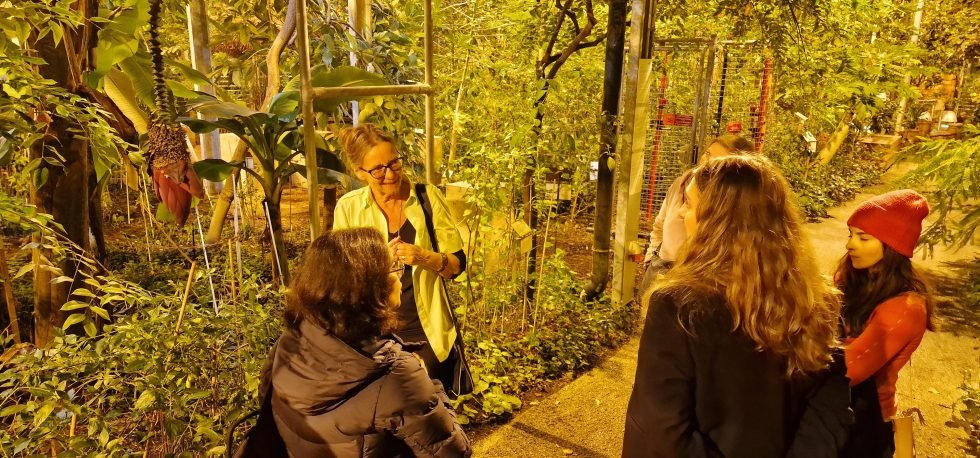Sustainability is a key issue that businesses need to consider in today’s world, and there is no better way to learn about it than to see it in action. MBA and Bachelor’s degree students from The Basel School of Business recently visited the Tropenhaus Frutigen, a sustainable farming and energy facility located in Switzerland, to learn more about sustainable agriculture and energy capture from waste water.
The Tropenhaus Frutigen is a unique facility that combines traditional farming methods with modern technology to create a sustainable and environmentally friendly farm. The facility uses geothermal energy to power its greenhouses, grow a variety of tropical fruits and vegetables, such as bananas, mangoes, and papayas, and even provide excess electricity to the community. The farm also has a fishery that produces fresh caviar and sustainable fish, such as tilapia and sturgeon, which are grown in the waste water from the fishery and greenhouse.
During their visit, the students had the opportunity to tour the facility and learn about the various sustainable farming practices and energy capture methods used at the Tropenhaus Frutigen. They saw first-hand how the geothermal energy is captured and used to maintain the temperature of the greenhouses, as well as how the waste water from the fishery and greenhouse is used to power the farm.
One of the most interesting aspects of the visit was the focus on sustainable agriculture. Students learned about the importance of sustainable farming practices such as temperature and humitity stabilizations as well as natural pest control, and how these practices can help to reduce environmental impact while increasing profitability.
The visit also focused on the energy capture from waste water, which is an innovative and sustainable method of energy production. The waste water from the Lötschberg Base Tunnel is pumped through a series of turbines, which is then used to power the facility. This method of energy production not only reduces the farm’s carbon footprint but also provides a cost-effective and sustainable source of energy.
Overall, the visit to the Tropenhaus Frutigen was an eye-opening experience for the BSB students, providing them with a firsthand look at how sustainable farming practices and energy capture methods can be used to create a more environmentally friendly and profitable business. As businesses continue to grapple with the challenge of balancing profitability with environmental responsibility, it is clear that sustainable farming practices and energy capture methods are becoming increasingly important in achieving this balance.


0 Comments